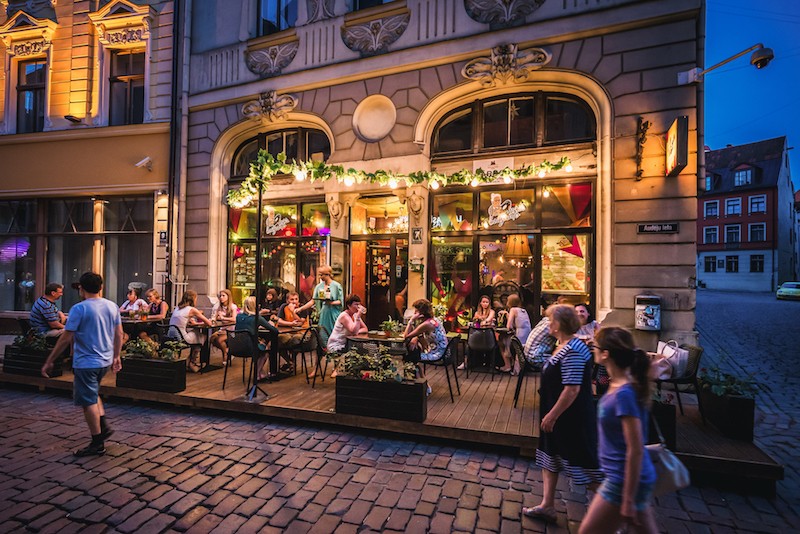Popular Reads
Top Results
Can't find what you're looking for?
View all search resultsPopular Reads
Top Results
Can't find what you're looking for?
View all search resultsFive things to know about Latvia
Change text size
Gift Premium Articles
to Anyone
H
ere are five things to know about Latvia, a Baltic state voting Saturday in a general election that could propel a pro-Russia party into power.
- A hundred years -
Dominated for centuries by Prussian knights, Polish and Swedish kings and Russian Tsars, Latvia declared independence in 1918. But its sovereignty was short-lived -- in 1940, it was invaded by the Soviet Union following its deal with Germany, which in turn took control of the country in 1941. The Red Army returned in 1944 and Latvia spent nearly half a century as part of the Soviet Union, going under the name of the Latvian Socialist Soviet Republic. It only regained independence in 1991 when the Soviet Union crumbled.
- Summer solstice -
Rediscovering their national identity -- alongside Baltic peers Estonia and Lithuania -- Latvians revel in old pagan feasts, the most notable being the summer solstice. On the longest day of the year, thousands of Latvians sing and dance around fires in parks and forests. Tradition also allows free, unprotected love on this night which, some say, caters to the need to boost the nation's poor birth rate.
Another remarkable Latvian tradition sees thousands of people of all ages sing at massive choir gatherings. The UNESCO-listed Latvian Song and Dance Festival draws tens of thousands of singers and dancers to a park in the capital Riga every summer.
- In Russia's shadow -
As part of the Russian empire and the Soviet Union, Latvia had spells of Russianisation and immigration. One in four Latvians is an ethnic Russian and people in mixed families often communicate in Russian rather than Latvian.
The Harmony party is popular with the Russian minority, as is another leftwing party, the Latvian Russian Union, which has set out to defend the interests of ethnic Russians and holds rallies to keep Russian lessons at schools, which have been jeopardised by a reform promoting the Latvian language.
Even though Latvians and ethnic Russians get on well in everyday life, the Kremlin's shadow still hangs over the country. The Harmony party has backed out of its cooperation deal with Vladimir Putin's United Russia party, but it never condemned the annexation of Crimea from Ukraine.
- Simple cooking -
Even Latvians acknowledge that their potato-based national cuisine is "simple" and not much to boast about. "Let's make this clear, it's worse than German cuisine and our cheese has nothing in common with French cheese," says a man living in Riga. Still, the national dish called "rosols" has its fans -- it's a mixture of small potatoes, marinated peas, pickles, pieces of sausages and meat with sour cream and mustard.
Read also: Finns find key to being world's happiest despite ups and downs
- Riga, multi-cultural capital -
Riga is the largest city in the Baltic states. More than 650,000 of 1.9 million Latvians officially live there, but the real population is likely much bigger as many residents are registered elsewhere. Ethnic Russians make up a considerable part of Riga's population and Russian seems dominant in the streets and shops, where Ukrainian, Belarussian and Polish can also be heard.
However the streets and monuments evoke the days when Riga was ruled by the German-Baltic elite. The city's Central Market, one of the largest in Europe, is housed in former Zeppelin hangars. Riga's once large Jewish community was almost wiped out by the Nazis. Only one synagogue survived Nazi and Soviet occupation.







